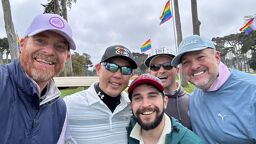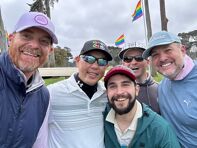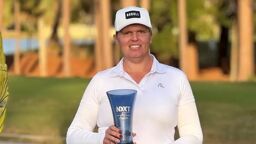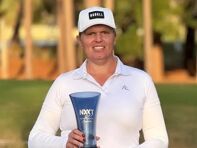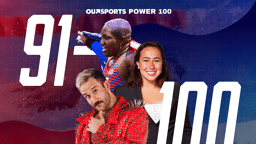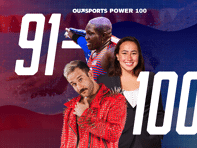Sitting on my apartment patio balcony in Tampa on a warm November night in 2015, my hands and body began to shake. In a weakened voice I turned to my best friend and said, “I can tell you anything, right?”
Tension built as he was caught off guard by my question. For the first time in my life, I was able to muster up the courage to say the words “I’m gay” to someone. After saying those two words, an overwhelming sense of relief and calm came over me, I felt like a new man.
My friend’s reaction was one of shock. He didn’t speak to me in the coming days and eventually gave me an ultimatum. He would continue living with me in our apartment only if I did not engage with, talk with or hang out with any other gay men.
In the weeks that followed, I lost my best friend of seven years. In his mind, he believed that I was making a mistake and made it clear that if I was to live an openly gay lifestyle, he wanted no part of it. Coming out, I vowed to myself that I will not allow someone to tell me how to live my life. Not even my best friend.
I have played competitive golf since I was seven years old. In high school, I was a four-year member of the Michigan All-State team and went on to play varsity golf for my collegiate years at Holy Cross College at Notre Dame. I was named NAIA Academic All-American my junior and senior years, and our team competed at the NAIA National Championship in 2012.
Growing up in a small Midwest Michigan town within a religious and conservative family, there was always an expectation for me to be something that I knew I was not. My sexuality is something that I have known since I was in middle school, but I couldn’t accept or embrace it. As for many, I was taught to believe that my attraction to the same sex was inherently wrong.
Throughout my junior, high school and college golf days, I never came out to anyone. In some respects I wasn’t ready. But also the culture that surrounds golf is not the most welcoming to LGBTQ+ people.
Throughout high school golf, I can’t begin to remember how many times I would hear, “that’s so gay”, “what a faggot” or “that sucks dick” before, during or after a round. Personally, that me feel angry. Angry because of the clear ignorance the other junior golfers had, but also angry because of the acceptance of such hurtful language by coaches and parents. Being surrounded by that culture made it harder for me to accept myself, and it pushed back any thought of coming out.
Golf not only has issues with homophobic language and humor, but an ever-present expectation that all who play the game are straight. “Check out that cart girl, isn’t she so hot?” “Hey Noble, who are you taking to winter formal?”
I never felt like I fit in during my high school and junior golf days. I didn’t think it was fair for all my teammates to be able to talk about how hot a girl was or who they had a crush on or their current relationship. I couldn’t relate to them.

Deep down I wanted to be able to talk about which guys at my school I thought were cute, who I would love to ask out on a date or my ideal dream boyfriend. Even though on the surface I could blend in, inside I felt as if I was alone on an island.
Coming out to my parents has been the most difficult experience of my life thus far. Their reaction at first was both sadness and disbelief. Tears were shed, and dreams that they had for me were shattered in that moment.
However, their love for me never wavered. I explained that my coming out needs to be an ongoing conversation and open dialogue. Fast forward three years, their love and acceptance for who I am is more realized than it has ever been.
Moving away from home provided me the opportunity that I needed to fully embrace, explore and accept myself. For 22 years of my life, I was taught and brought up to believe being gay meant acting, dressing, talking and being a certain person. When I moved to Florida, I had my job out of college, first time living on my own and met my first boyfriend. Finally, a chance to be and live true to myself.
Competitive and casual rounds of golf as an openly gay man present challenges. Even recently this past summer playing at a course with some friends, I was asked on the putting green, “Chris, do you have a girlfriend?” And I responded back, “No, but I do have a boyfriend.”
I’ve learned to embrace the awkwardness of these exchanges and use them as a learning tool for others.
By sharing our story, we can create a more inclusive and welcoming culture in the game.
Golf has long had an issue with being exclusive and elitist toward dealings of race, gender equality and sexual orientation. My hope is that with sharing my coming-out story, others will follow from the golf world. By sharing our story, we can create a more inclusive and welcoming culture in the game.
For those of you reading this who are struggling with your sexuality or identity, remember to do things on your time. There will be hurdles with coming out, but nothing in this life worth having ever comes easily. Coming out is an ongoing process and not something that is done in one day or one exchange of words. Surround yourself with those who support and love you for your true self.
Chris Noble is a 2015 graduate of Holy Cross College at Notre Dame where he majored in Business and was a member of the men’s golf team. Chris manages the National High School Golf Association (NHSGA). He can be reached at [email protected], on Instagram @barnes_noble, or on Facebook.
Story editor: Cyd Zeigler





